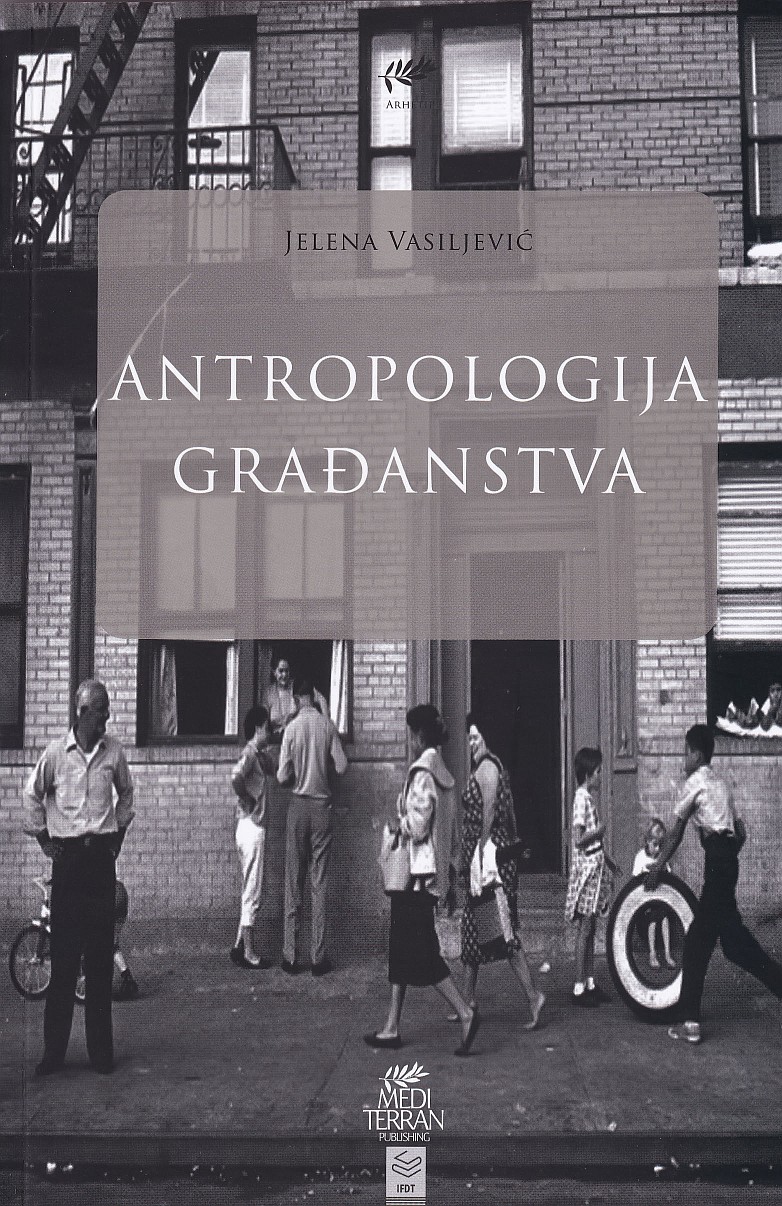
Anthropology of Citizenship
Author(s)/Editors Jelena Vasiljević Publisher Institute for Philosophy and Social Theory, University of Belgrade Mediterran Publishing, Novi Sad Published 2016 ISBN 978-86-6391-034-8 Pages 211 Edition Special editionAnthropology of Citizenship is a multi-layered study that approaches the problem of citizenship across disciplines: as a legal institution, political practice and a sense of belonging to a community. The key argument of the book concerns the relationship between culture and citizenship. Along with accepting the cultural shading of citizenship, it is necessary to accept the ever-present political nature of cultural identities. If we accept the argument that as citizens, we have the right to (our) culture, we should equally acknowledge that in (our) culture we are already citizens – because culture is also a matter of politics, belonging, negotiation, power relations, privileging and marginalization. The theoretical reflection on the relationship between citizenship and culture is complemented by two empirical chapters that situate this debate in the context of a case study of the breakup of Yugoslavia and the establishment of new political communities. Constitutions and citizenship laws of newly established states and their role in redefining civic identities and rights are analyzed using the method of “constitutional ethnography”. The final chapter brings the life stories of individuals whose destinies were determined by the formation of new citizenship regimes and a new understanding of the relationship between culture and citizenship. The political and legal frameworks in which citizenship policies are implemented and regulate the availability of citizenship rights most directly affect the destinies of many people. Discovering that world most convincingly reveals the truth that citizenship is not only a theoretical concept or a political category, but also a defining aspect of the human agency and strive for a dignified life.
